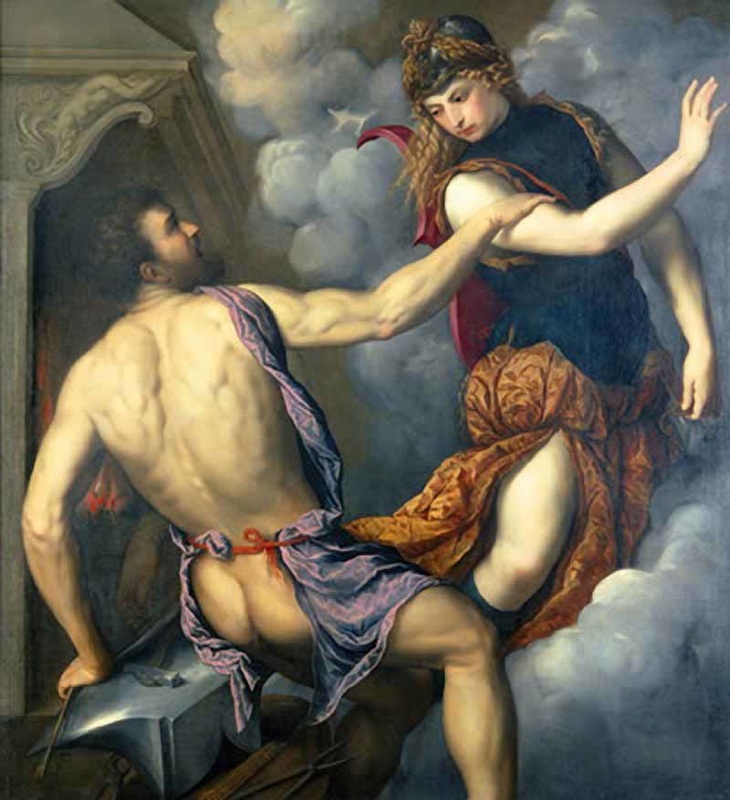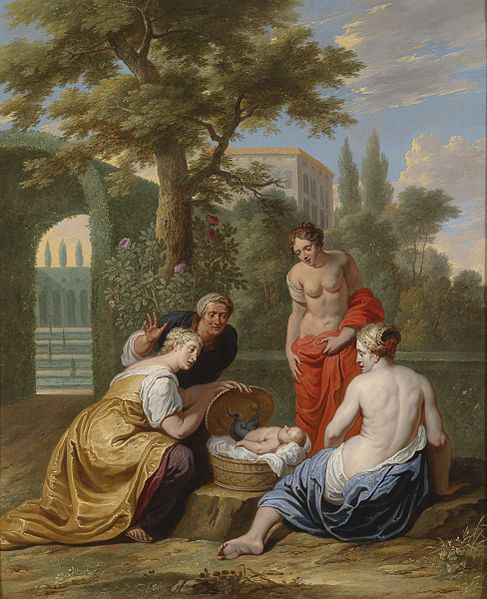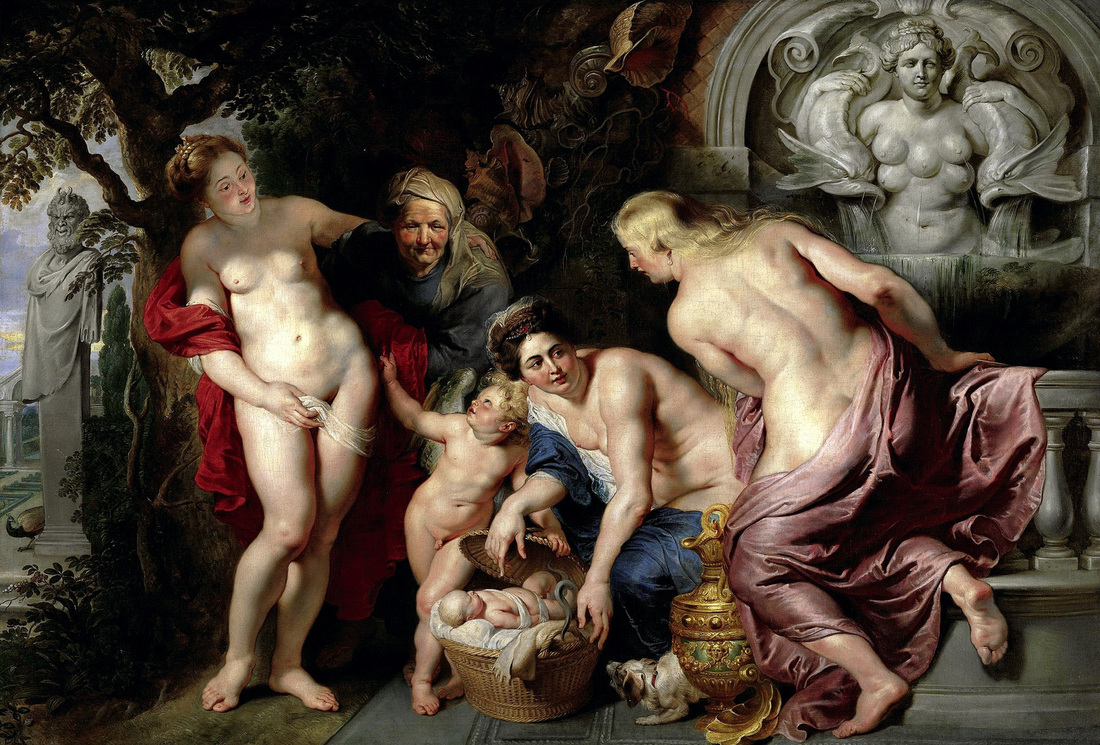KING ERICHTHONIUS IN GREEK MYTHOLOGY
King Erichthonius of Athens
Erichthonius is a name associated with two kings from Greek mythology; one was a king of Dardania, the more famous, was an earlier king of the city state of Athens.
The Birth of Erichthonius
|
Erichthonius is often proclaimed to be born of the soil, autochthonous, although in Greek mythology there is a story about the birth of the future king of Athens.
The story is told of how the goddess Athena required some new weapons made, and so the goddess visited the workshop of the metalworking god Hephaestus. Hephaestus was overcome by the beauty of Athena and attempted to rape her. Athena was famous for protecting her virginity though, and fought off her attacker. During the attack, the semen of Hephaestus fell upon the thigh of Athena, who quickly wiped it off with a woollen cloth, before the goddess threw the semen covered cloth onto the earth.
|
When the semen hit the earth Erichthonius was born, thus Ericththonius could be said to be the son of Hephaestus and Gaia (Earth).
|
|
Erichthonius and the Daughters of Cecrops
|
Athena decided to become the protector of the new-born babe, and to raise it, but she wished to do so in secret, and so Erichthonius was placed into a small basket. When absent, and unable to care for Erichthonius, Athena would hand over the closed basket to the three daughters of King Cecrops of Athens, daughters normally named Aglaurus, Herse and Pandrosus. Athena warned the three daughters though never to look inside the basket.
One time Athena was away collecting a mountain to be made use of at the Acropolis, when two of the daughters Aglaurus and Herse, decided to look in the basket. Their action though was observed by a crow, who promptly went and told Athena. Athena dropped the mountain she was carrying, creating Mount Lycabettus in Athens. |
Aglaurus and Herse were then said to have gone mad, either at the undertaking of Athena, or because of what they saw in the basket. In either case the two daughters of Cecrops threw themselves off the Acropolis, killing themselves.
King Erichthonius
|
The reason often quoted as to why the daughters of Cecrops might have gone mad is because Erichthonius was no normal boy, for his lower body part comprised that of a serpent’s tail. Although as their father was also commonly described thus, it should not have been sufficient to send Aglaurus and Herse mad.
Athena continued to protect Erichthonius into adulthood, and Erichthonius would eventually become king of Athens. By this time Cecrops had been succeeded by Cranaus, who had then be usurped by Amphictyon (a son of Deucalion), who Erichthonius then forced out. |
|
Erichthonius King of Athens
As king of Athens, Erichthonius would wed the Naiad Praxithea, and would become father to a son, Pandion I, who after Ericthonius’ long reign of 50 years, would succeed his father to the Athenian throne.
Having been educated by Athena, Erichthonius was able to teach the Athenians many things, including the ploughing of the earth, the smelting of silver and the yoking of horses. In this vein, Erichthonius was said to have also invented the four-horse chariot, the quadriga.
Erichthonius would continue to give praise to Athena, for the Panathenaic festival was said to have been created by the king in honour of the goddess.
Having been educated by Athena, Erichthonius was able to teach the Athenians many things, including the ploughing of the earth, the smelting of silver and the yoking of horses. In this vein, Erichthonius was said to have also invented the four-horse chariot, the quadriga.
Erichthonius would continue to give praise to Athena, for the Panathenaic festival was said to have been created by the king in honour of the goddess.
|
|


